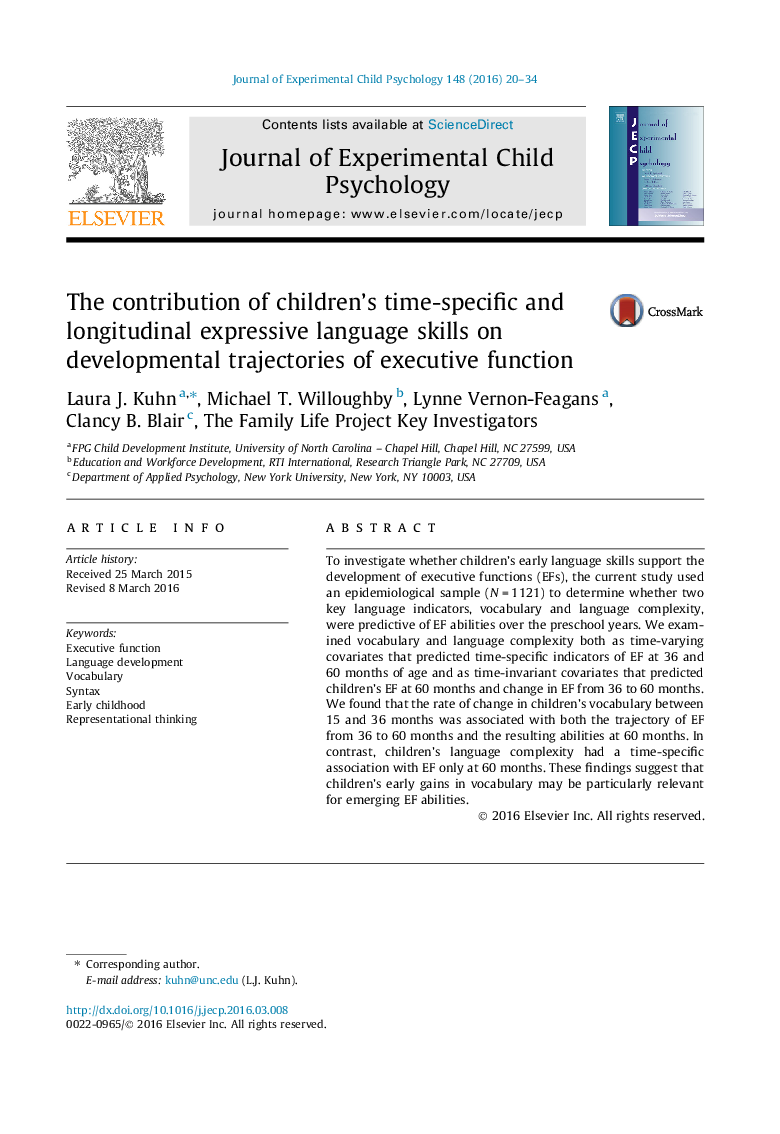| Article ID | Journal | Published Year | Pages | File Type |
|---|---|---|---|---|
| 7274645 | Journal of Experimental Child Psychology | 2016 | 15 Pages |
Abstract
To investigate whether children's early language skills support the development of executive functions (EFs), the current study used an epidemiological sample (NÂ =Â 1121) to determine whether two key language indicators, vocabulary and language complexity, were predictive of EF abilities over the preschool years. We examined vocabulary and language complexity both as time-varying covariates that predicted time-specific indicators of EF at 36 and 60 months of age and as time-invariant covariates that predicted children's EF at 60 months and change in EF from 36 to 60 months. We found that the rate of change in children's vocabulary between 15 and 36 months was associated with both the trajectory of EF from 36 to 60 months and the resulting abilities at 60 months. In contrast, children's language complexity had a time-specific association with EF only at 60 months. These findings suggest that children's early gains in vocabulary may be particularly relevant for emerging EF abilities.
Related Topics
Social Sciences and Humanities
Psychology
Developmental and Educational Psychology
Authors
Laura J. Kuhn, Michael T. Willoughby, Lynne Vernon-Feagans, Clancy B. Blair, The Family Life Project Key Investigators The Family Life Project Key Investigators,
